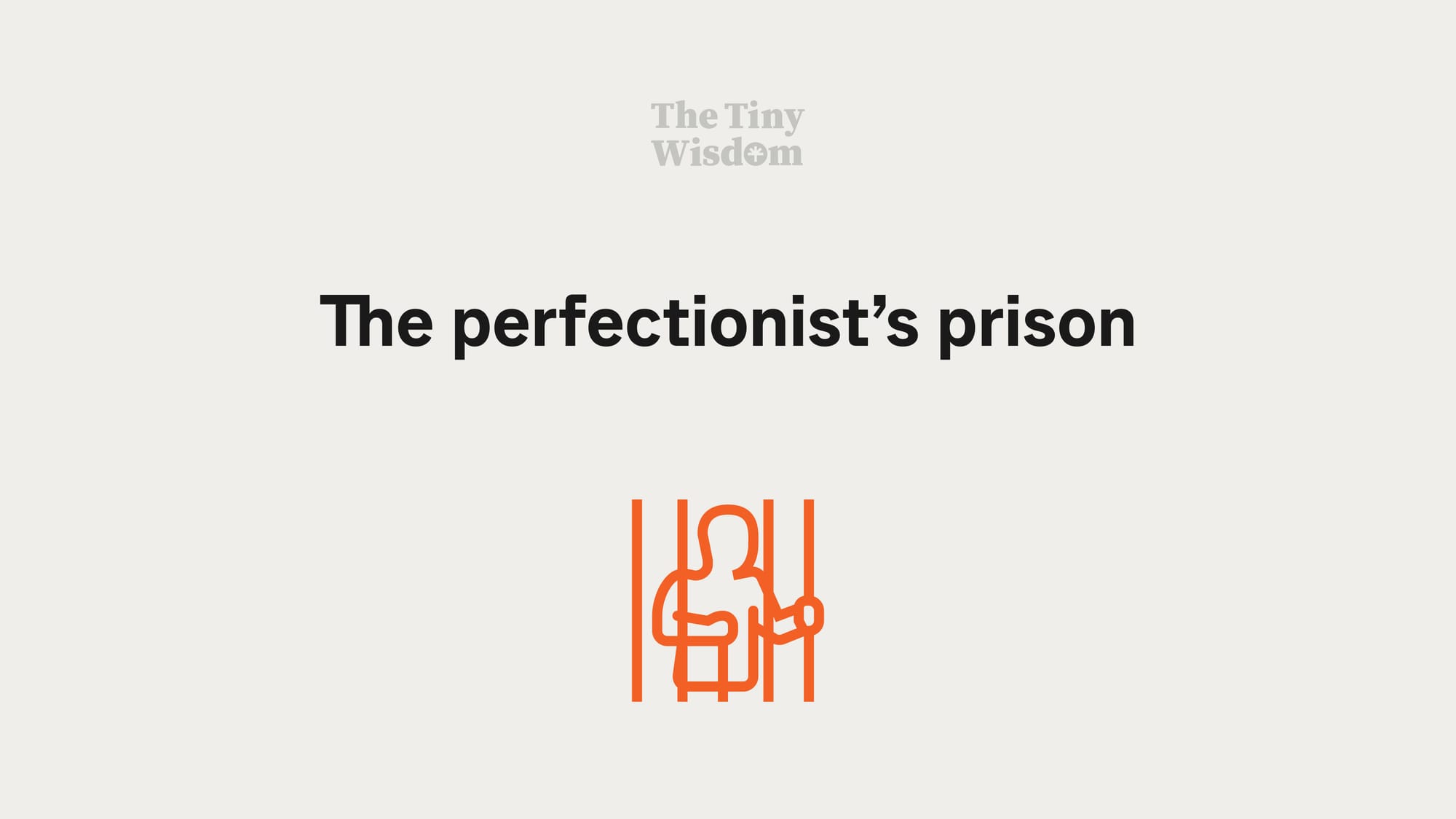The perfectionist’s prison
Perfectionism was my shield, a way to protect myself from criticism and disappointment. But in reality, it was a prison of my own making.

I was once a perfectionist. I wanted everything to be pixel-perfect, down to the last details, with no margins of error. I wanted everyone to see me as someone who never missed, was always on point, and was dependable, so I spent a lot of time trying to make everything perfect.
But being perfect is impossible. So, I ended up wasting time and overthinking the most trivial things. I spent effort on things that didn’t matter. I made people think that they couldn't depend on me, which was the opposite of what I wanted to be.
It turns out I was not a perfectionist. I was just a coward. I was afraid of being judged, of being seen as incompetent, of not meeting others' expectations, of failing.
Perfectionism was my shield, a way to protect myself from criticism and disappointment. But in reality, it was a prison of my own making.
The perfect excuse
We often mistake perfectionism for excellence, but they're not the same thing. Excellence is about doing your best and continually improving. Perfectionism, on the other hand, is about control.
By striving for perfection, I thought I could control how others perceived me. If everything were flawless, there would be no room for criticism, right? But this illusion of control came at a high cost.
I'd spend hours agonizing over minor details, afraid to move forward until everything was "just right." The fear of imperfection often led me to put off tasks until the last minute. Lastly, constantly pushing for perfection left me exhausted and unfulfilled.
Perfection is a myth
Embracing imperfection doesn't mean lowering your standards. It means accepting that you're human and humans make mistakes. And as humans, we learn from our mistakes.
True growth comes from being willing to fail, learn, and try again. It's about having the courage to put your work out there, even when it's not perfect.
So, instead of aiming for perfection, I'm learning to focus on progress:
- Celebrate small wins: Every step forward is a victory, no matter how small. It's better to try and fail than not to try at all.
- Embrace feedback: Criticism isn't a personal attack; it's an opportunity to improve. I no longer take things personally. I learned to read the intention of the feedback, and it makes it easier to embrace criticism.
- Set realistic goals: Perfection is impossible, but continuous improvement is achievable.
No longer perfect
As I let go of my perfectionist tendencies, I've found a new sense of freedom. I'm more productive, more creative, and, ironically, producing better work than ever before.
Most importantly, I'm happier. The constant pressure to be perfect has lifted, replaced by a genuine desire to learn and grow.
Perfectionism isn't about being perfect; it's about fear. The only way to overcome that fear is to face it head-on, embrace our imperfections, and have the courage to be authentically ourselves. If I had never left the perfectionist's prison, I wouldn't be able to write this piece for you.
Remember, it's okay to be a work in progress. After all, that's what makes life interesting.
I hope you find this insightful. Remember:
It's not going to be easy,
But it's not impossible.
Your friend,
Brian.
